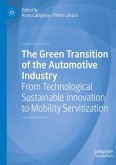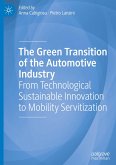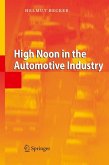In 1962, South Korea assembled just 1,100 new automobiles. By 1996, this total had soared to 2,812,714. What explains this remarkable growth? The answer is complex, and involves a combination of a supportive State, timely technology alliances, a skilled but historically low-paid workforce, aggressive pricing, savvy entrepreneurs, and fortuitous circumstances. Despite this amazing ascent, comparatively little has been written about the Korean auto industry in English. In the first of a two-volume set, this 11-chapter book seeks to help fill this void by providing in-depth examinations of all six of Korea's automakers from their beginnings through 1996. Uniquely written from the perspective of industry analysts at the time (without knowledge of the Asian Fiscal Crisis), the book should prove informative to practitioners, scholars, and students interested in automotive history, international political economy, Asian studies, and more.
Bitte wählen Sie Ihr Anliegen aus.
Rechnungen
Retourenschein anfordern
Bestellstatus
Storno








